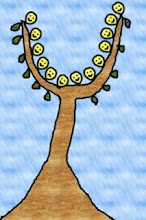Looking down at the street, the young Bowie saw the line. “I still don’t get it”, he thought. It was supposed to mean something. It was supposed to change something in him, seeing the line. Of course, that was a metaphorical line he was looking for, while staring at literal lines in the world around him. He heard a car from afar and moved aside. He saw the car pass by. The line, to the car, guides the way. It divides traffic in neat groups, coming and going. From inside each car though, it was all coming. The world rushed at you as you perceive to be moving through the world. He moved back to the center of the road and stared again. He needed a line to follow, like the car, to guide him. To guide him towards what? It didn’t matter, the line knew, that was the whole point.
Bowie envied all those who saw the line easily. The lines of their lives that guided them, that led them. Sometimes he comforted himself thinking their lives must be more boring, his life was full of twists and turns because he didn’t follow a beaten path. But that was a lie. He didn’t eat well because he didn’t have a line to follow; he just ate what came in front of him. He didn’t sleep well. But most importantly, he didn’t work well. He knew, he knew, that if he could just be consistently on one path he’d excel. His brother Lucas was successful, he’d seen the line early on and followed it. He was also thin. Damn thin people. He heard a car coming from the other direction, right ahead of him. He moved to the side.
Digging through his bag of tobacco he waited. Only enough for one more cigarette. “I’ll roll this one, but I’ll smoke it later”, he promised himself, almost as soon as he saw himself lighting it – almost as if looking at someone else.
His father saw multiple lines, but he burned
himself out trying to follow them all at once. Bowie never began a line, he was
so unsure of himself, so afraid of turning into his father, a man who could
neither paint nor play the guitar. He thought of his brother again then. The painter
of the family, the pride and joy of his father. And what was he? Another
wayward soul who thought that if he applied real-world knowledge to a concept
he could make it real somehow. He could make himself see. The car had long
past, but his cigarette was only halfway done. He went out to the middle of the
road again and stared.
Bowie’s namesake was, of course, the famous musician. Why couldn’t he have just taken up music? He tried, he really had, but had no consistency. He thought of trying something else, but the spectre of his father’s failures stopped him. Where was his place in all of this? His sisters always coddled him, the little runt, they tried to convince him that nobody expected anything from him. That was somehow worse. Why should nobody expect anything from him? He had to have a calling. Something.
Suddenly, he felt it. First in his leg, then his whole body went numb. A car he hadn’t heard. A car whose driver had gotten distracted by a phone. As he flew through the air Bowie saw the line had guided the car right at him. Of course it had, he was the maniac standing in the middle of the road. “That’s why I couldn’t see it before”, he thought absurdly, as if time had stopped while he was flying through the air. You can’t see the line if you’re standing still, you can only see it moving, in every direction as it may be – but moving. Behind the car now, his body neatly on the street, right in the middle of the line he had analysed so much, he had his revelation. He’d never been so close to death. He’d never felt so alive.
Bowie’s namesake was, of course, the famous musician. Why couldn’t he have just taken up music? He tried, he really had, but had no consistency. He thought of trying something else, but the spectre of his father’s failures stopped him. Where was his place in all of this? His sisters always coddled him, the little runt, they tried to convince him that nobody expected anything from him. That was somehow worse. Why should nobody expect anything from him? He had to have a calling. Something.
Suddenly, he felt it. First in his leg, then his whole body went numb. A car he hadn’t heard. A car whose driver had gotten distracted by a phone. As he flew through the air Bowie saw the line had guided the car right at him. Of course it had, he was the maniac standing in the middle of the road. “That’s why I couldn’t see it before”, he thought absurdly, as if time had stopped while he was flying through the air. You can’t see the line if you’re standing still, you can only see it moving, in every direction as it may be – but moving. Behind the car now, his body neatly on the street, right in the middle of the line he had analysed so much, he had his revelation. He’d never been so close to death. He’d never felt so alive.





